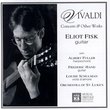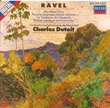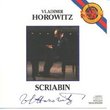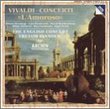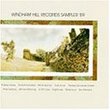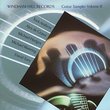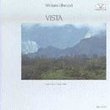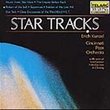| All Artists: Franz Joseph Haydn, Anner Bylsma, Vera Beths, Robert Levin Title: Haydn: The Last 4 Piano Trios Members Wishing: 0 Total Copies: 0 Label: Sony Release Date: 6/1/1993 Genre: Classical Styles: Chamber Music, Historical Periods, Classical (c.1770-1830) Number of Discs: 1 SwapaCD Credits: 1 UPC: 074645312026 |
Search - Franz Joseph Haydn, Anner Bylsma, Vera Beths :: Haydn: The Last 4 Piano Trios
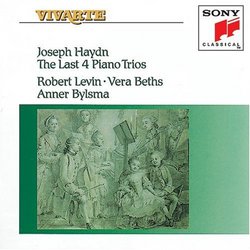 | Franz Joseph Haydn, Anner Bylsma, Vera Beths Haydn: The Last 4 Piano Trios Genre: Classical
Noted musical scholar Charles Rosen calls Haydn's piano trios the most technically difficult piano works before Beethoven's sonatas, and that includes Mozart, who was a pianist. These are indeed extraordinary pieces, and t... more » |
Larger Image |
CD DetailsSynopsis
Amazon.com Noted musical scholar Charles Rosen calls Haydn's piano trios the most technically difficult piano works before Beethoven's sonatas, and that includes Mozart, who was a pianist. These are indeed extraordinary pieces, and the only thing that has prevented their being far more frequently played is the fact that the cello is used almost exclusively to reinforce the bass of the piano--a combination that sounds wonderful, but isn't much fun for a professional cellist. In fact, Haydn wrote these piece for gifted amateurs, and they have an easy tunefulness and sense of fun that is virtually unmatched by any other composer. These performances have just the right relaxed, genial quality, and the sound is excellent. --David Hurwitz Similarly Requested CDs
|
CD ReviewsOnce, there was a very lucky hungarian count... dominic johnson | chicago, il | 07/11/2000 (5 out of 5 stars) "Does period instrument performance conjure up memories of anemic tone and poor intonation? Tired of sloppy vibrato and obvious phrasing? Try this disk for incisive playing with rich, warm sonorities that resonate inside your mind's ear. The absolute abandon these stellar musicians bring to these interpretations is infectious and convincing. At times one feels like the music is sheer telepathic group improvisation, not a meticulously notated opus number whatever. Having played some of Haydn's earlier piano trios where form is stricly adhered to and melodies stay within the constraints of the decorous, the eye-opening range of emotions expressed by these late works is clearly ground-breaking. The debt that Mozart and even L.v.B. owe to Papa H is once again in evidence here, particularly in the slow movements. Vera Beths has to be one of the most lyrical players of this age. Any doubters should refer to L'Archibudelli's recording of Beethoven's opus 9 trios, still my all-time favorite chamber music recording." Haydn--wild, passionate, sometimes downright strange Michael Steinberg | Rochester, NY USA | 09/27/2002 (5 out of 5 stars) "Not only are these superb period performances--Levin's improvised ornaments add to the fun--but these extraordinary pieces should put the lie to the "Papa Haydn" tag. The most intimate and playful of his major works, the trios explore emotional depths the more public works only touch on. The bizarre, neo-Baroque Allegretto from No. 44 (Hob. 28) is one of the strangest pieces of the Classical period, with a stunning outburst of fury at the end--this in a trio that begins with an uncanny imitation of a guitar. (Thought a piano couldn't play pizzicato? Listen to Haydn's scoring.) And the whirligig German dance that closes the next trio, complete with village band sounds and joke after joke, might be the giddiest piece ever. Haydn's trio layout, with the 'cello usually doubling the piano's bass line, is often criticized; with the weaker sustaining power of the fortepiano, though, it makes perfect sense, and many balance problems disappear. This is great music, performed with love and delight." Infectiously fun Haydn Ryan Richards | Midland, MI United States | 12/30/2005 (5 out of 5 stars) "I'm not usually a fan of period-instrument recordings, but there are some isolated ones that I can't imagine being played any other way, and this is one of them. The more incisive sound of these instruments helps delineate and clarify some of Haydn's best work. This is ferociously inventive music, even for Haydn, with not a bar of filler to be found. Other reviewers have commented on the whirling German dance that closes the E Flat trio (No. 45), or the guitar-like effect that opens the E Major (a resemblance made particularly uncanny by the period instrument sound). Note also the darkly shadowed middle movement of that E Major trio, which is so creepy as to be almost macabre - even by today's standards. This music was obviously meant for entertainment, and its inventiveness and breathless exuberance held my rapt attention from the first bar to the last... but the real genius here is how Haydn uses the "fun" surface of this music as a cover for his awesome depth of musical skill. Entertainment this music may be, but the lasting value comes from the seemingly effortless way this master composer wields every compositional technique in the book, without once making it obvious that's what he's doing. These trios are an unparalleled synthesis of intellect and emotion - the "meat and potatoes" and the fluffy pastries all in one. Levin, Beths and Bylsma see both those sides in this music, playing with an intensity and sense of delighted enjoyment that makes this music irresistible without ever straying outside Haydn's idiom. Highly recommended for any Haydn fan - and if you're new to Haydn, this is a great way to learn more."
|

 Track Listings (12) - Disc #1
Track Listings (12) - Disc #1